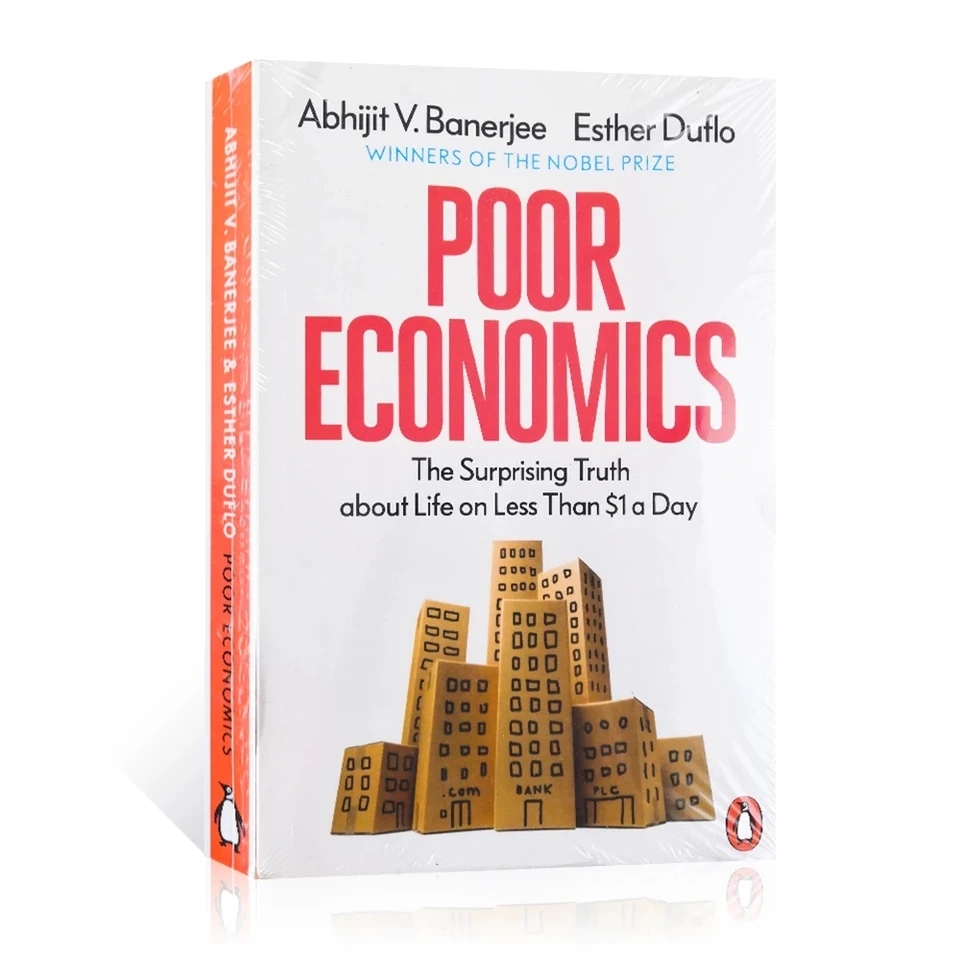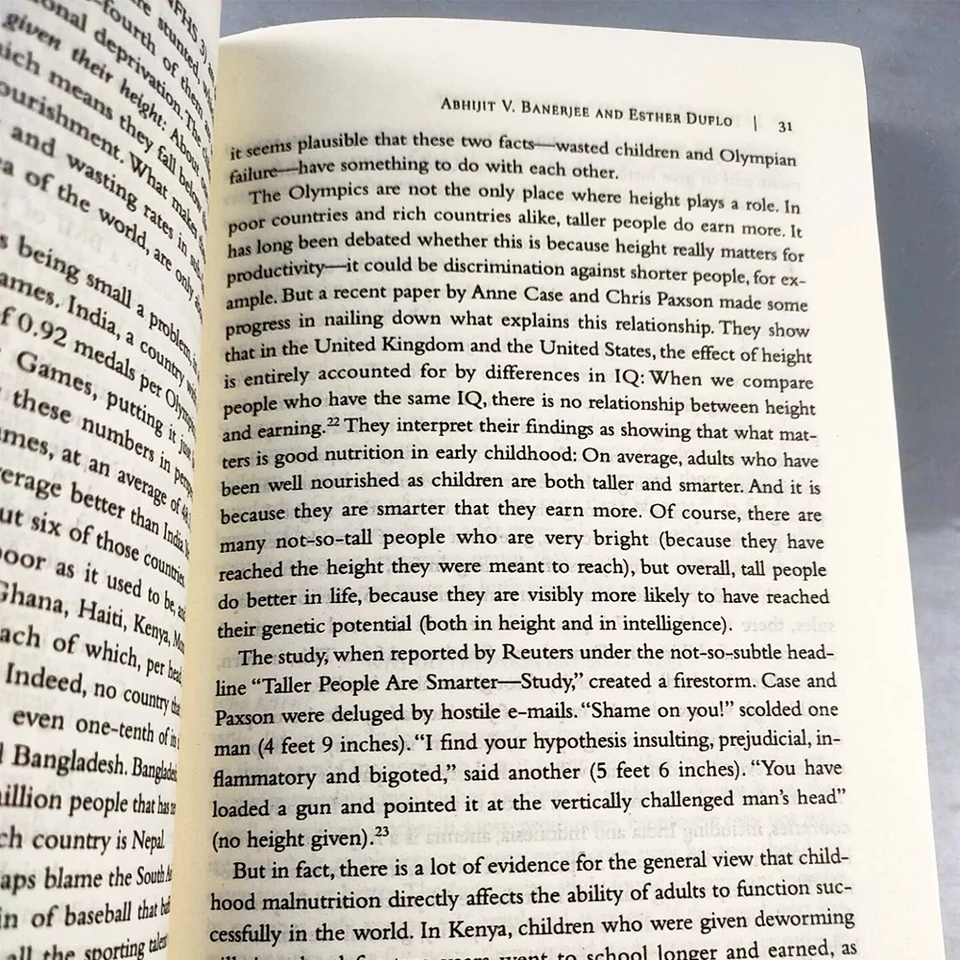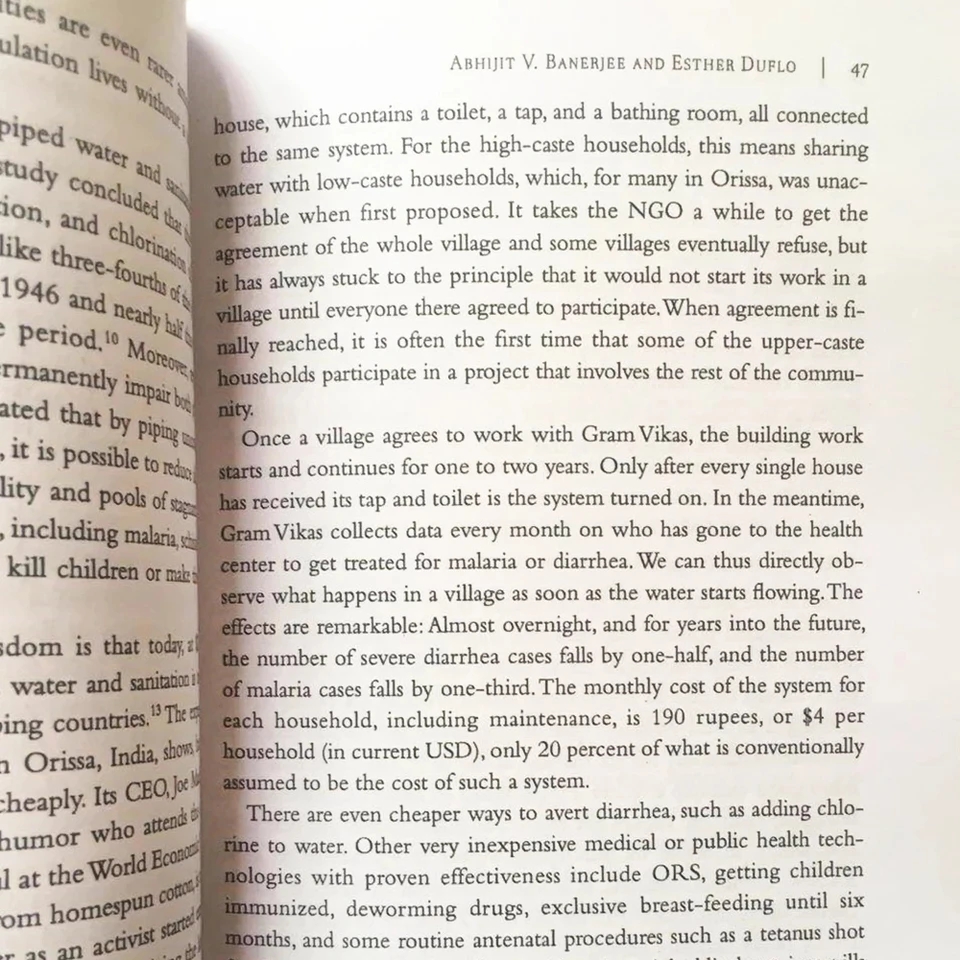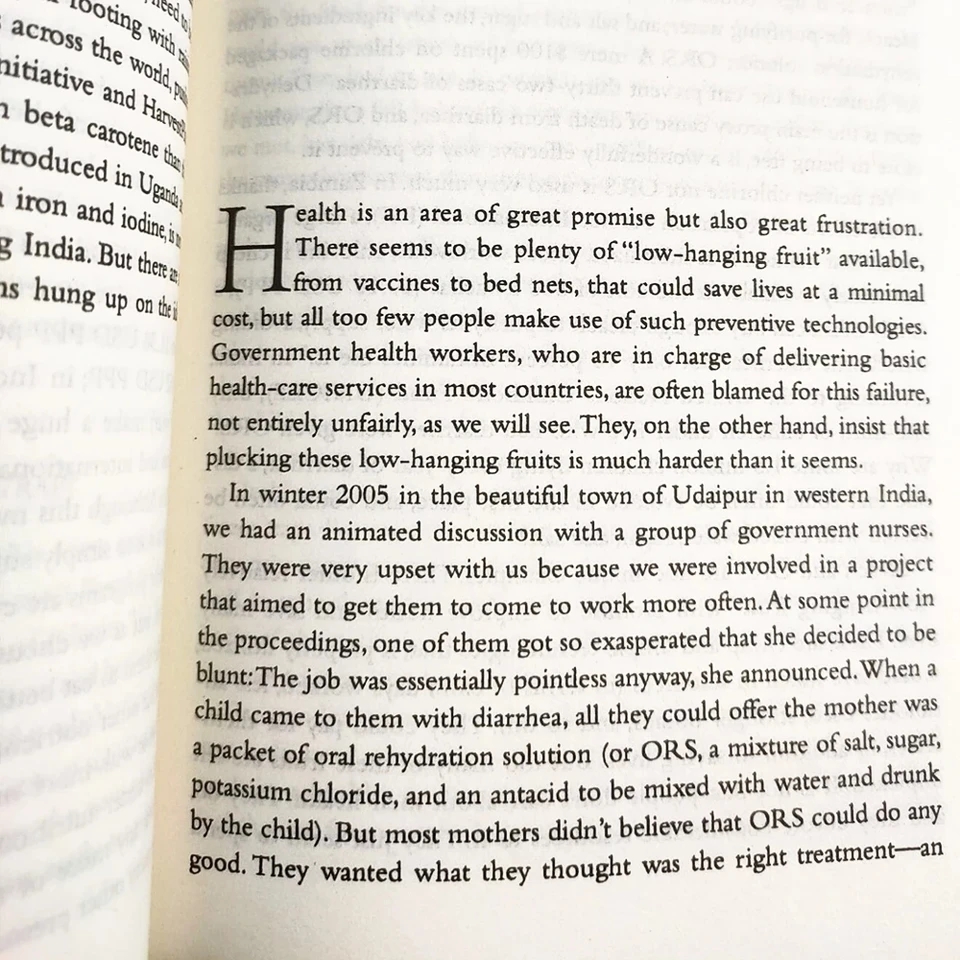Description

“Poor Economics: A Radical Rethinking of the Way to Fight Global Poverty” by Abhijit V. Banerjee and Esther Duflo presents a detailed analysis of the complexities of poverty and proposes a nuanced approach to combating it. Here are ten key principles and lessons from the book:
- Microeconomic Approach to Poverty: Banerjee and Duflo emphasize the importance of understanding the daily lives of the poor, focusing on specific behaviors and choices rather than viewing poverty only through large-scale economic theories.
- The Importance of Randomized Controlled Trials (RCTs): The authors advocate for using RCTs as a method to assess the effectiveness of various anti-poverty programs, emphasizing evidence-based policy making.
- Conditional Cash Transfers: They highlight the success of conditional cash transfer programs, which provide financial incentives for poor households to engage in behaviors like sending children to school or seeking healthcare.
- Health Investments: The book discusses how poor health is both a cause and a consequence of poverty. Access to affordable healthcare and preventive measures can significantly improve productivity and overall wellbeing.
- Education and Skill Development: Education is crucial for breaking the cycle of poverty, but the authors stress that the quality of education matters more than mere access. They explore various educational interventions that have shown real promise.
- Behavioral Economics and Decision Making: The authors explore how the poor often make decisions under significant constraints and stress, which can lead to suboptimal choices. Understanding these psychological barriers is key to designing effective interventions.
- The Role of Social Networks: Banerjee and Duflo emphasize the importance of social capital, showing how the relationships and support systems among the poor can influence economic decisions and resilience.
- Access to Financial Services: They argue that credit and savings mechanisms, like microfinance, can help poor people smooth consumption and invest in opportunities, although they caution against viewing microfinance as a panacea.
- Agricultural Practices: The book examines agricultural productivity and the importance of adopting better farming practices, technology, and access to information to improve the livelihoods of rural poor.
- Context Matters: One of the overarching themes is that there is no one-size-fits-all solution to poverty; effective policy must be tailored to the specific circumstances and cultures of the populations being targeted.
These principles highlight the book’s core message: addressing poverty requires a careful, nuanced understanding of the lives of the poor, grounded in empirical evidence and experimentation. If you’d like to explore any of these concepts further, let me know!
GET THE BOOK.









Reviews
There are no reviews yet.